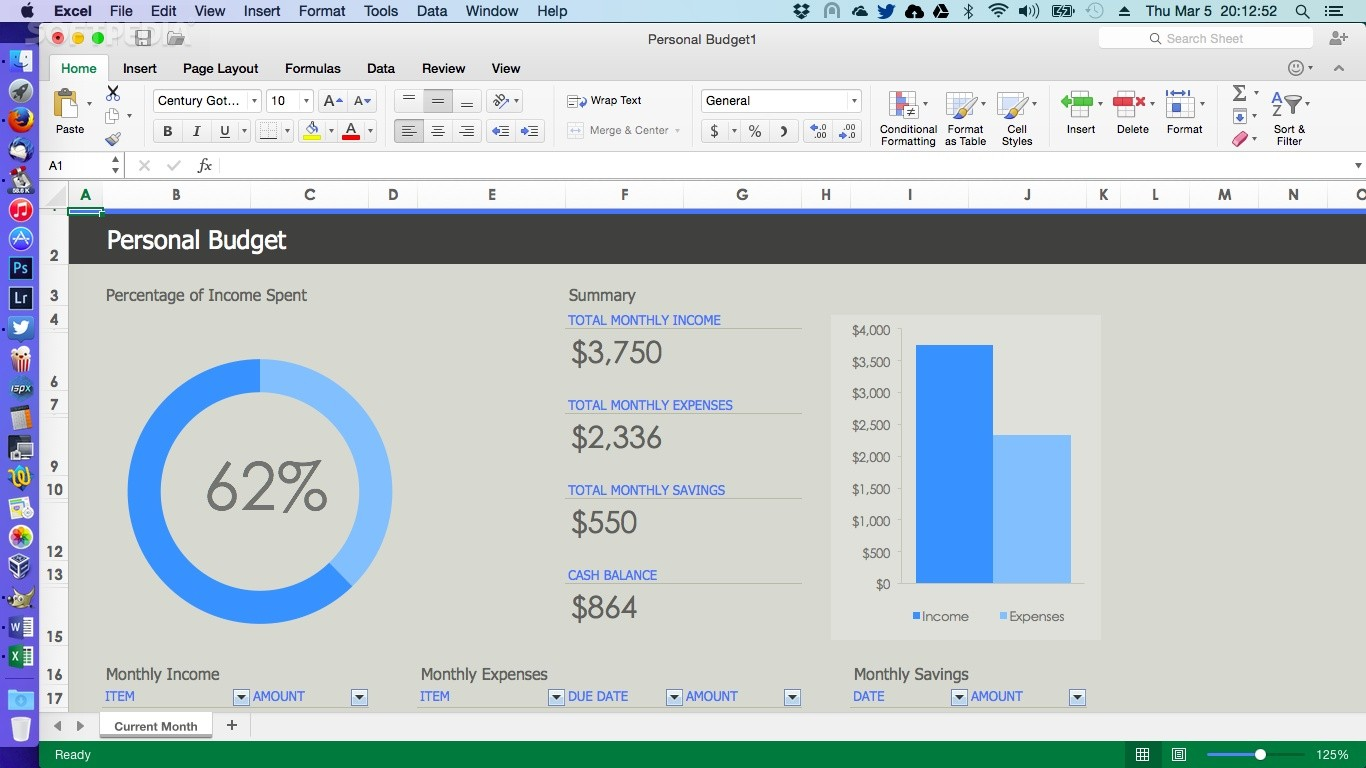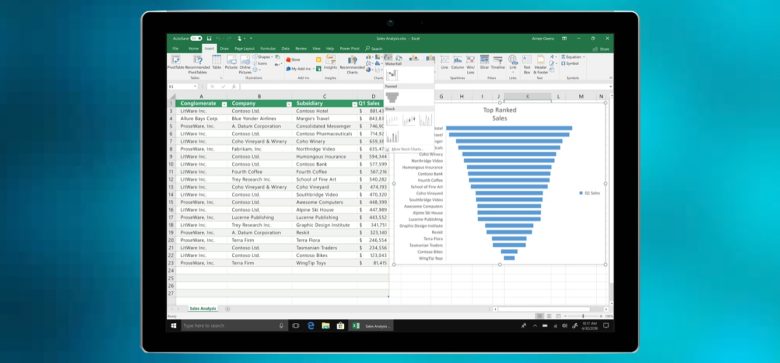
Moving to the cloud: Like the other apps in the latest Mac Office suite, Excel 2016 lets you store, sync, and edit files online, via Microsoft's OneDrive cloud storage service. You can also save.
The classic number-crunching app gets a new look There are generally two kinds of spreadsheet users: the first uses spreadsheets as a simple database, creating lists of tabulated data, which they then need to reorder and sort. The other kind, though, is a very different breed – serious number crunchers who need, and use, powerful mathematical functions. Excel 2011 manages to contain plenty that will please most folk. The most visible of these features is the smart revamped interface, which does away with the endless array of floating palettes that we’ve come to love (or loathe) in favour of the unified Ribbon interface that adorns all the Office apps. The Ribbon is a context-sensitive bar that displays options according to what you’re doing at the time. This is integrated into the main window, so gone are the floating palettes, and you can collapse the Ribbon if you want some extra workspace.
Google play app for mac. It does this by way of constantly checking that all installed Apps have the present day available versions. Google Play services is a supporting App that makes sure that our installed Apps on our PC/Desktops are up to date.

There are other interface improvements, too. For example, there’s a new Workbook Gallery that appears when you launch the app. This includes templates on your Mac and access to online templates too.
The fact that you have direct access to an online library of templates, which can grow over time, means this feature beats the equivalent in Apple’s Numbers spreadsheet. Helpful updates Previous updates to the Mac version of Excel, Microsoft’s flagship spreadsheet, have largely concentrated on users who use the app for basic everyday tasks. The Lists feature of Excel debuted on the Mac, and remains unmatched in terms of being a simple way to create, sort and order lists of data. Excel 2011, though, contains plenty of bits and pieces that will surprise and delight the real number crunchers. Probably the most important feature is the return of Visual Basic for Applications (VBA), which essentially means that proper support for macros, dumped after Office 2004, is now back. If you’re a power user, and particularly one who works in a cross-platform environment, this is more than enough reason to invest in Excel 2011.
Power users will also appreciate the useful changes to conditional formatting, which loses its occasionally restrictive limit of three rules per cell. And the conditional formatting editor has had an update that makes it easier to use for anybody who is just starting with this powerful feature.
With this version, Microsoft has also chosen to meet the challenge of online office suites that are offered by the likes of Google head-on. You can now save your documents from Excel directly over to Windows Live SkyDrive, which is a free service with 25GB of storage that lets you store documents online and then edit them using web-based applications. The web version of Excel doesn’t match the feature set of the desktop version, as you’d guess, but it is fantastic for quick edits and – importantly – preserves the features of any document that it doesn’t directly support. The verdict Excel 2011, then, is an impressive upgrade to what was already a solid and established product. The new-and-improved interface removes the clutter of multiple palettes, while the power-user features mean that, at long last, Microsoft Excel for Mac 2011 is the rightful match of its much-applauded Windows cousin.